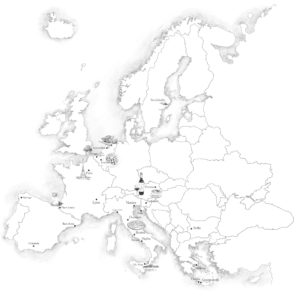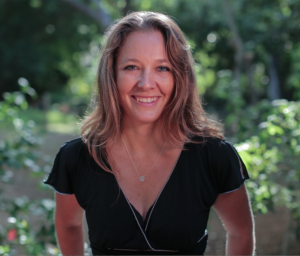The following is not from the last section of the book, however, it is the last section I will be sharing with you. (Sad face).
Today is also your last chance to pre-order a signed & delivered copy directly from me. After this, if you’ve enjoyed these tales so far, you’ll have to read Soul Shaping Tails for yourself. And I hope you do. 🙂
Dig in.
 I’ve long forgotten Dimitris’ father’s name, but he was warmly weathered in all the ways that men who raise children and crops, curate vineyards and orchards, and work hard in the fields all their life grow old to be. He was kind. He spoke no English, but his smiling eyes and calm demeanour were enough. He grinned proudly under the brim of his flat cap as he drove us in his old rickety truck through mountain roads, chatting in Greek to his son along the way.
I’ve long forgotten Dimitris’ father’s name, but he was warmly weathered in all the ways that men who raise children and crops, curate vineyards and orchards, and work hard in the fields all their life grow old to be. He was kind. He spoke no English, but his smiling eyes and calm demeanour were enough. He grinned proudly under the brim of his flat cap as he drove us in his old rickety truck through mountain roads, chatting in Greek to his son along the way.
Passing through acres of picturesque hills, we seemed to move through time, back to how the old country must have felt decades or centuries ago. The roads wound higher and higher, rising above dry valleys sketched and carved by borders of olive grove after olive grove and vineyard after vineyard. The sky was one of the bluest I’d ever seen, and the day was again blazing hot, but the sparkling sea was just in sight, peek-a-boo-ing between the hills from the east as we drove further inland.
Around each bend, old, crumbling houses peeked out from the woody and dusty hillside. Some were abandoned, and some decorated with laundry hanging on lines in the yard to dry. Some featured a broom or a truck in the drive or some other telltale sign that the house was thriving with life and bustling.
Dimitris’ dad would pull over every now and then at unmarked viewpoints along the road, overlooking the small but vast views. We’d climb out of the vehicles to breathe in the hot air lightly fragrant with mountain tea that grew so wildly beyond the roads.
His dad was short and tanned, and his balding, white head of hair was complemented with a thick white moustache. He’d wave his muscled arm over the scenery that opened wide before us and speak rapidly in Greek. Dimitris would translate:
His family owned all of this land. All of the land you can see to the sea. Up that road, he gestured, is his wife’s village. Her family still lives there. Down below, he waved, were his vineyards. Vineyards and orchards. More was to come.
The old road wound up and around, and the sea became a more distant blue-sparkling dot as the landscape became more pervasive. The hillside we hugged was cliffed high by stone walls that rose straight up toward the sky.
Around about the third wide bend, the landscape turned wilder with the addition of mountain goats surprising us as much as we surprised them. These mountain goats were perched and balanced on the thinnest, most uneven ledges of the cliffside. They gazed down at us with bugged eyes, rudely chewing grass with their mouths open as we passed. Delighted—and startled—we stared right back.
Dimitris’ father drove along a little farther, then slowed down as we approached another drive that quietly veered off the main road. We had arrived at Dimitris’ grandmother’s house. She had passed 10 or 11 years prior, but her small home, built seemingly only with stones, still sat alone amongst the Cypress trees, not quite a ruin, but kindly inviting in its semi-crumbling state.
The house hadn’t been lived in for all this time. The two-story, white-walled house was now overgrown with branchy trees and bushes shamelessly crowding the paths, grappling into doorways, and reclaiming the space. The herbs—thyme or rosemary and mountain tea—bloomed with abandon, blending fragrantly as they scented the air, abundant with vines and dusty perfumed leaves.
We climbed single file through the low, scratchy branches, legs scraped by dry bushes as we walked towards the house. In the yard stood a large, old-fashioned cement tub that had once been used for winemaking. It was purple-stained and dusty but could still be re-employed if desired. It was propped up so that the drain at one end could freely pour into a bucket or a barrel.
Dimitris explained that the cement tub would be filled with grapes from their nearby vineyard, then a few of the older kids would squash the grapes with their bare feet until the juice flowed down and out of the pipe at the end of the tub.
Exploring her homestead more, we discovered wild blackberries growing along the side of the house and road, and so we freely picked a few handfuls. They were thick and bitter and sweet and juicy and wild on our tongues.
The wooden door leading inside the house was unlocked, and I remember only one main front room, bare but still cosy with dusty wooden furniture sparsely scattered about. In the far corner was a rickety wooden staircase. Dimitris’ father momentarily disappeared and scared down a small black bat that flapped around frantically before flying out an open window.
The house was so old that it was falling apart in places, worn by time and the wear of growing families and changing seasons. But something about it still emanated a cosiness. The air felt heady and wonderfully dense from all the love and life that had once breathed here. The rubble on the stone floors seemed to me to be more like cake crumbs, the wide, white walls like a snug blanket as the windows on each side filtered in bright, enchanting light. It was as if the house had seen so much life in past years that it was doing just fine on its own for a while—a brief repose. Dimitris shared with us his plans to renovate it and move in with his own family after a few years. How beautifully perfect.
I’m not sure why—perhaps it was the aroma of the wild berry bushes and the twinkling of dust we’d kicked up in the sunlight, the bitter wine in the ageing, disused house, and sharing all these warm memories with these old and new friends—but my heart in those moments felt so full, I could almost have cried. I think it was one of the most loved-in places I’d ever been.
As we started to leave, we discovered two old and dusty barrels parked in the corner of an adjoining room. They were still sealed and filled with homemade wine.
Was the wine still good? Could we taste it? Sure we could.
Dimitris syphoned wine out with his mouth by using a hose. A few dusty glasses were set up on a cobwebbed wooden table in the middle of the room, so we rinsed them off and poured ourselves a few sips of 40-year-old homemade wine.
What did it taste like? It tasted like summer in Crete.
.
.
.
Interested in the entire book? Here are your Pre-Sale options:
 1) In-person delivery of paperback in Nicaragua ($20, free s/h)
1) In-person delivery of paperback in Nicaragua ($20, free s/h)
2) Personally mailed paperback ($20, free s/h within the US & Canada, shipping overseas is additional. Sorry.)
Payment Options:
Zelle (within US) using [email protected] (preferred)
PayPal (friends & family) using this link
Revolut using @christynichols
Cash in Nicaragua
If you’d like to jump in on the pre-sale, just send a $20 USD payment with “Book” in the comments, and I’ll send you a confirmation.
Paperback will be released on Amazon in June ($19.99 + s/h, unfortunately without a personal note from me. Ebooks are also available in June, and audiobooks released later this summer).
If you have any questions just reply to this email.
Thank you!!
~ Christy
Want more good stuff? Explore 1:1 Life Purpose Coaching or the online Lifestyle Transition Course. Reply in the form below to find out more about my private coaching sessions.
- Sign up to receive future blog posts here.
- Sign up to follow me on Instagram here.
My stories are pretty good. 🙂

Christy Nichols
Author | Life Purpose Coach | Curator of Transformational Experiences | CEO at Venture Within | Purposeful Travel Advocate
View LinkedIn Profile
Want to connect? Click below to receive future blog posts, join any of my coaching programs, ask about how to join an upcoming retreat, or how to co-host your own retreat with me.






